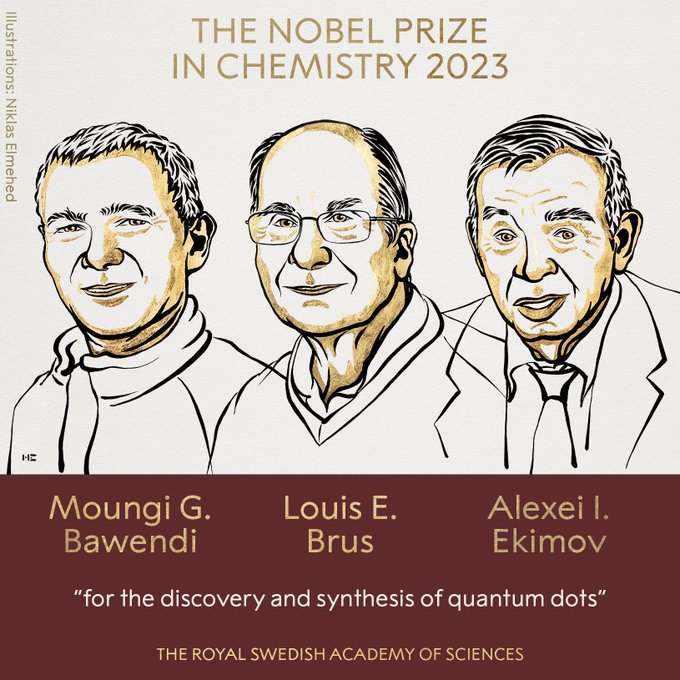Dr. Moungi Gabriel Bawendi, a Tunisian-American scientist and professor at the Massachusetts Institute of Technology (MIT), has been honored with the prestigious Nobel Prize in Chemistry.
Dr. Bawendi, whose familial roots trace back to Tunisia, has risen as a figure of excellence and innovation within the scientific community. His pioneering work in quantum dots has propelled this field to the forefront of modern technology.
This year’s Nobel Prize in Chemistry is jointly awarded to Dr. Bawendi and two other distinguished laureates, Louis Brus and Alexi Ekimov, who, according to the Royal Swedish Academy of Sciences, “planted an important seed for nanotechnology.”
The revolutionary breakthrough that led to this prestigious accolade occurred in 1993 when Dr. Bawendi transformed the chemical production of quantum dots, creating nearly flawless particles. The exceptional quality of these quantum dots became a fundamental requirement for their application across a wide range of domains, from electronics to medicine.
Quantum dots have rapidly evolved to become integral components of cutting-edge technologies. They are currently illuminating computer monitors and TVs through Quantum Dot Light Emitting Diode (QLED) technology, delivering enhanced color and clarity. Furthermore, biochemists and medical professionals utilise quantum dots for precise biological tissue mapping, offering invaluable insights into the human body’s intricacies.
Scientists and engineers envision an exciting future where quantum dots will play pivotal roles in flexible electronics, minuscule sensors, compact solar cells, and secure quantum communication. These tiny, luminous particles hold the potential to revolutionize industries, offering new possibilities for technological advancement.
“The Nobel Laureates … have succeeded in producing particles so small that their properties are determined by quantum phenomena. The particles, which are called quantum dots, are now of great importance in nanotechnology,” the Nobel Committee for Chemistry said in a statement.
“For a long time, nobody thought you could ever actually make such small particles,” Johan Aqvist, the chair of the Academy’s Nobel committee for chemistry, said at a news conference announcing the 2023 laureates. He introduced five colorful flasks, claiming they held liquid solutions of quantum dots, and proclaimed, “This year’s winners achieved success.”
“I wasn’t sure it was true,” said Dr. Bawendi when he received the call informing him of his Nobel Prize, as he shared in an interview with the Nobel Foundation. “It’s quite an honor and quite a surprise.”
The scientist also expressed his deep appreciation for sharing the prestigious award with his former mentor, Dr. Brus, stating, “He molded me as a scientist.”
Before the announcement, Dr. Bawendi had a 9 a.m. class on introductory quantum mechanics scheduled at M.I.T., but the day took an unexpected turn as the lesson transformed into a discussion of his remarkable career leading up to the Nobel Prize. Reflecting on the whirlwind of events, he calmly remarked, “I’m just going to let it ride.”
source/content: theobserverpost.com (headline edited)
______________


_________________________
AMERICAN / TUNISIAN